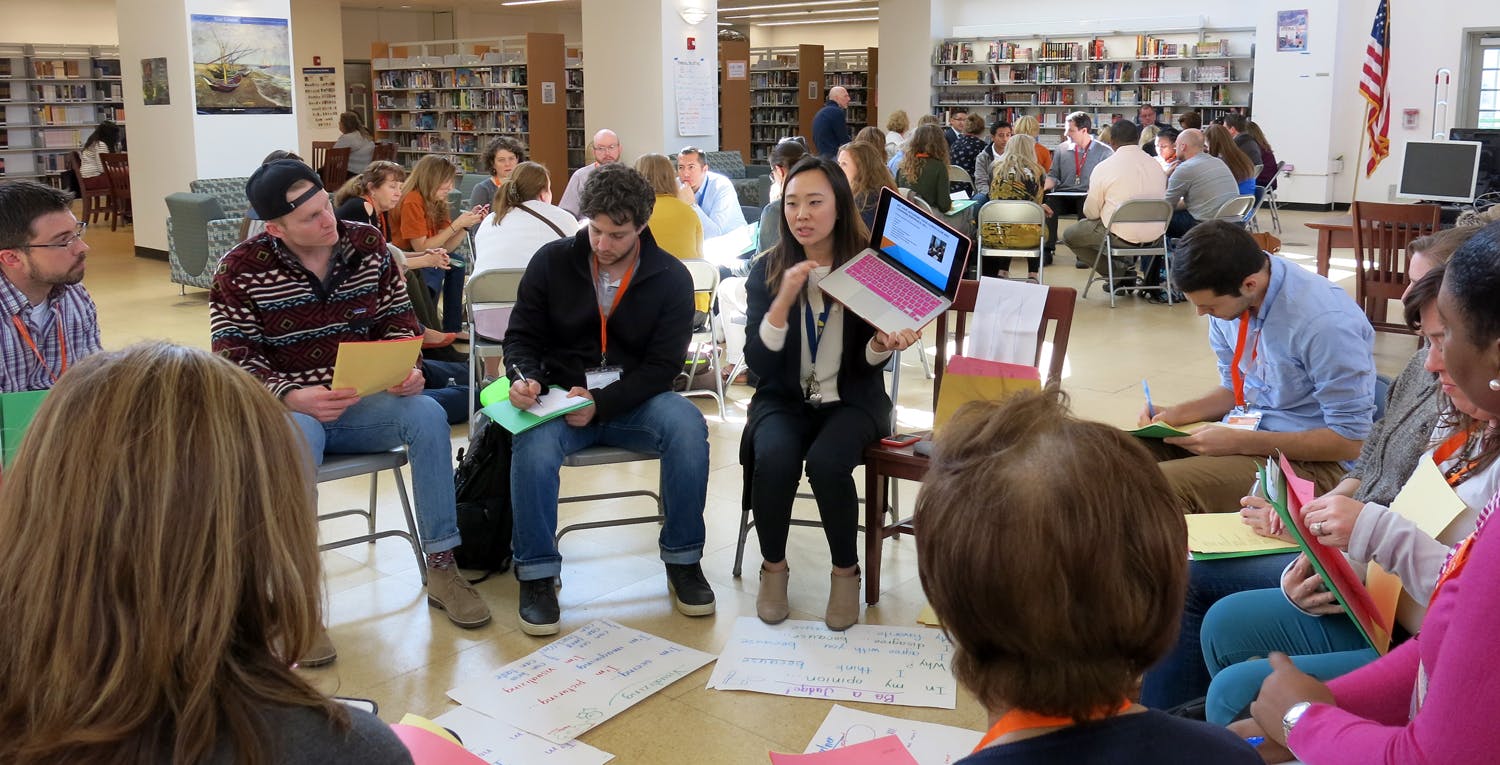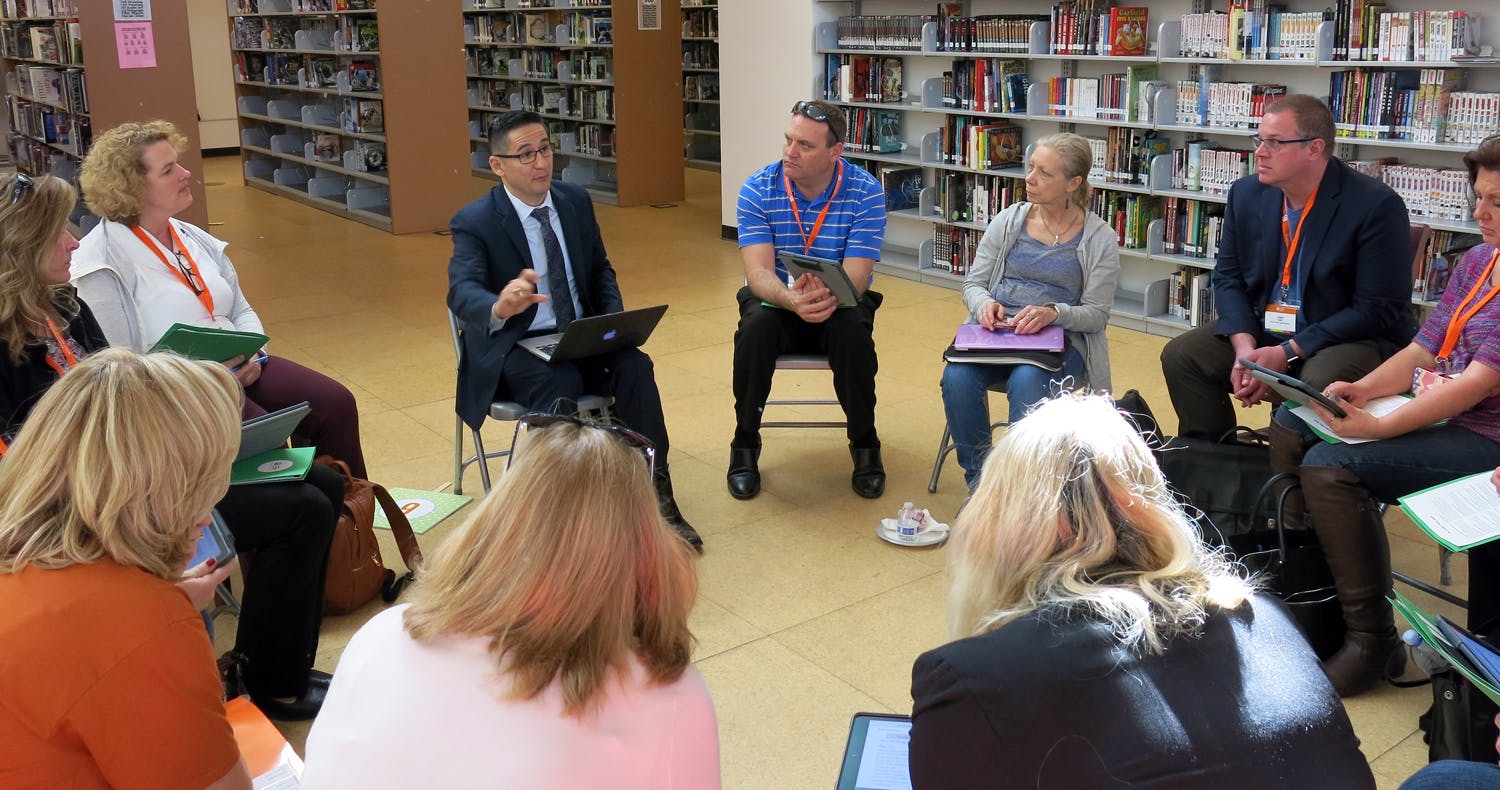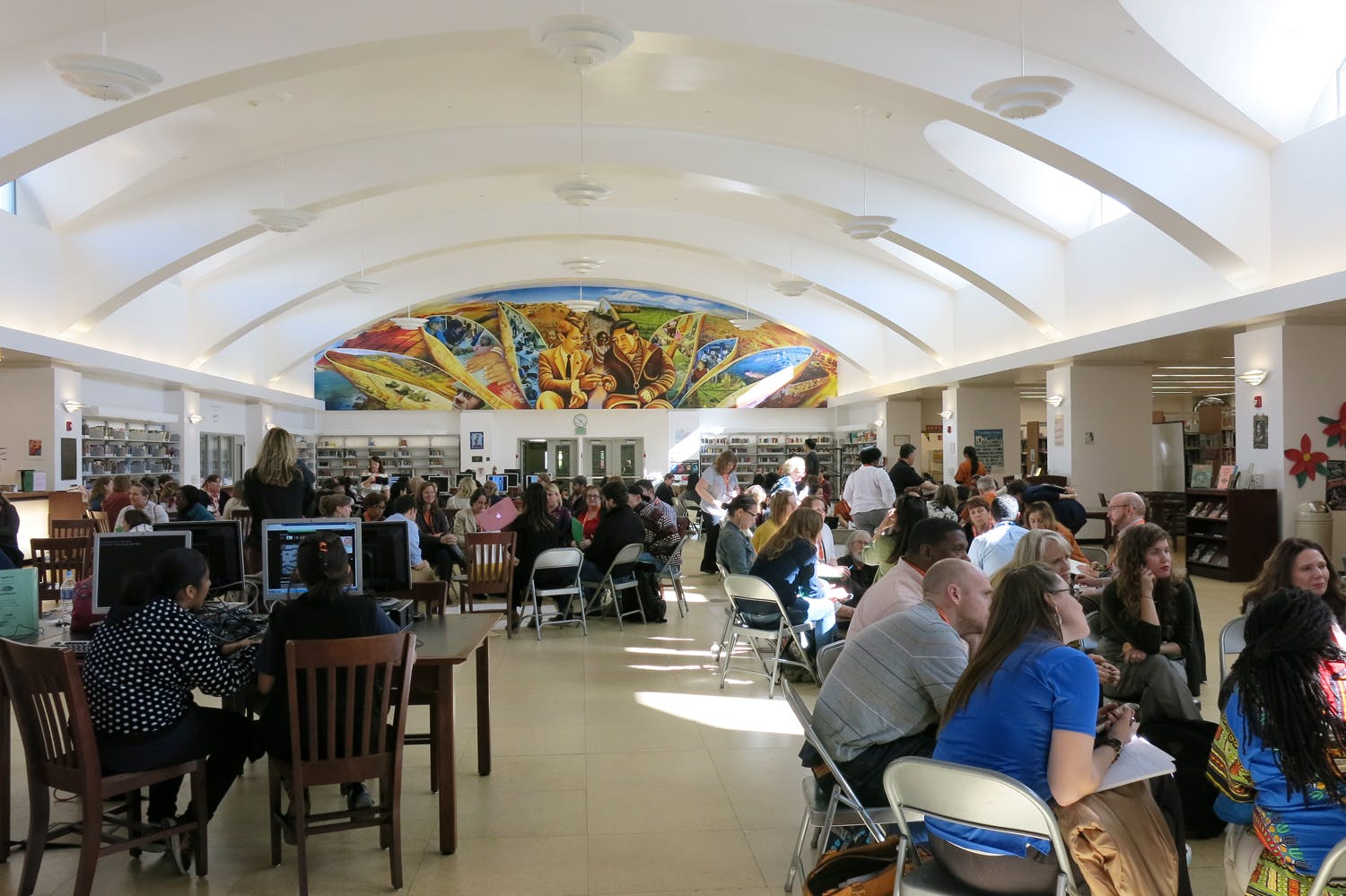The motto, “Where we grow together,” has applied to students, teachers, staff, and families at UCLA Community School since its inception in 2009. In January, the innovative K-12 campus extended this philosophy to teacher colleagues from across the nation, co-hosting the national conference of Teacher-Powered Schools (TPS). A tour of the RFK Community Schools – which includes UCLA Community School among six schools on the campus – kicked off the three-day conference held at UCLA’s Luskin Conference Center. Karen Hunter Quartz, director of research at UCLA Community School, Rebekah Kang, special education teacher and Teacher-Powered Ambassador, UCLA Community School, were among the presenters at the conference. Soo Jin Choi and Pedro DeLeon also represented UCLA Community School as TPS Teacher Representatives, and led rotating discussion groups following the school tours.

Choi, who teaches second and third grade, presented a table talk on “Community Building and Learning Through Dialogue.” She shared the UCLA Community School’s focus on research, curricular autonomy, and teacher and student learning.
“What sets us apart is that we have structures and budget in place to support [these],” she said. “A lot of teachers were interested in learning how to do this [and] the foundational work that goes into building a pilot school.”
“Organizing this event has been really amazing because this is a really good time for the [RFK] schools to get together,” said Kang. “It’s a really good time to reflect on what we’ve done so far and where we’re going to go in the future, and to reaffirm our identities as teacher-led schools.”
Kim Farris-Berg, who co-authored the 2012 book, “Trusting Teachers with School Success: What Happens When Teachers Call the Shots,” is a consultant to the TPS initiative. She said that when the TPS conference was established in 2015, many of the participating schools “all thought of themselves as islands.”
“They were making similar decisions, but they all felt alone,” said Farris-Berg. “And so this is really an opportunity to come together and learn from each other and share practices.”
Farris-Berg said that while numerous issues in public education are up for debate, including charter schools vs. districts, the question of tenure, and school size, Teacher-Powered Schools is “an opportunity to rise above all of that rhetoric.”
“When [teachers] have the authority at the school level to make decisions, they take care of all of those issues all by themselves,” she noted. “I don’t think we need to be having all of these debates that really distract us from the mission of public schooling. It’s about what the best vehicle is for [teachers] to get to the best learning in their schools.”
Kang said that the TPS philosophy of believing in teachers “is so refreshing to hear. Just to have an organization that will back you up and say that this [teacher-led] governance structure allows for sustained innovation, will truly help our community.”
“UCLA envisioned this school from the very beginning as a place where teachers would lead, innovate, and share their learning,” Quartz added. “It’s great to be part of a larger national movement that also recognizes the power of teachers.”
Teacher-Powered Schools center on eight practices that include a common purpose and vision, collaboration for the good of the whole school, ongoing learning, individualized student learning, holistic approach to discipline, multiple measures for student performance, teacher evaluation and improvement, and budget trade-offs to serve students.

DeLeon, who teaches chemistry and physics at UCLA Community School, spoke on “Using Improvement Science to Improve Teaching and Learning.” He said that TPS enhances student learning while it empowers educators.
“I don’t follow the same traditional ways I used to teach before which was to provide a lecture and have students take notes,” he said. “It’s more of [hearing] what students have to say, learning together, guiding them and giving them the power to take hold of their own learning in the classroom.
“[Students] have the opportunity to see the passion the teacher has for the curriculum he or she wants to do,” he said. “The student actually has fun along with the teacher, and gets to learn at the same time.”
DeLeon said that UCLA Community School’s open door policy among colleagues means “taking part in building the structure of the school in whatever way we want it to be built.
“This experience has opened up my eyes to what the rest of the country should be doing in order to promote education, promote teacher power, and how we can all take a hold of our own curriculum and instruction instead of letting it go from the top down,” he said.
For more on Teacher-Powered Schools, visit these links:
“Getting school choice right: Cultivating student-centered learning in teacher-powered schools” – Center for Teaching Equality blog, February 1, 2017
“Three Lessons From a Teacher-Powered Schools Conference” – Education Week, February 2, 2017
“So You Want to Create a Teacher-Powered School? Five Things to Know” – Education Week Teacher, February 8, 2017
Above: The national conference of Teacher-Powered Schools, which was held at UCLA, gathered for a pre-conference tour and discussions at UCLA Community School in late January.
